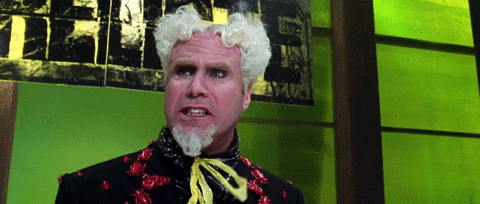Per My Last E-mail #12
Natively Integrated Education, Will Ferrell, Universal Laws, Expertise, Book Club
Hi Friends 👋,
Happy Monday! If your brain needs something light to rev back up after the weekend, I made a thread on The Will Ferrell Effect.

Ok, now that we’re warmed up, let’s dive in. 🏊🏼
🎓 Natively Integrated Education: Lambda School 💻

Last week, I wrote about why there isn't a dominant Aggregator in online education. In Part II - Natively Integrated Education: Lambda School - I look at how Lambda School, a full-time, online immersive Computer Science academy, is taking a Natively Integrated approach to education.
There are a few key takeaways from Lambda’s approach:
Income Share Agreements, which allow students to pay nothing upfront and only pay Lambda when they have a job and earn more than $50k, aligns Lambda’s incentives with its students and forces a focus on outcomes
Instead of viewing the student as the customer, Lambda views engineering-job-ready graduates as supply and potential employers as its customers
Lambda builds and iterates on its curriculum hand-in-hand with potential employers to give its students the best chance to get, and succeed in, technical roles
Lambda has built a growth loop, shown in the image above, that allows it to attract more students and improve job placement rates over time
While Lambda faces real risks, which I discuss in the post, I believe that the Natively Integrated approach to online education is the most likely to produce results. Lambda will be a bellwether - if it succeeds, I expect to see companies take a Natively Integrated approach to pieces of the education stack beyond technical education.
As always, feedback is welcome and appreciated :)
Links & Listens
🚂 We Need a New Science of Progress by Patrick Collison and Tyler Cowen in The Atlantic
Collison, the CEO of Stripe, and Cowen, an economist, argue that we need a new discipline, “Progress Studies,” focused on understanding the dynamics of progress with the deeper goal of speeding it up.
🔗 The Startling Convexity of Expertise by Byrne Hobart
When your job and your interests intersect, you spend a lot of time working on related topics and develop Convexity of Expertise - familiarity with a topic means that you can make connections more easily —> retain information better —> make more connections, and ultimately, develop a strong opinion and be willing to make a big bet on it.
(Meta moment: in the post, Hobart links to a Bloomberg article breaking down John Malone’s investments. Malone is the protagonist of Cable Cowboy, which I wrote about in PMLE #10 & #11. Convexity of Expertise in action.)
🌎 Universal Laws of the World by Morgan Housel
Two of the 11 universal laws in the post are worth highlighting, because they tie to things I’ve written about in Per My Last E-mail:
#6 Parkinson’s Law: Work Expands to fill the time available for its completion (Related to: The Startling Convexity of Expertise)
#9 Stigler’s Law: No scientific discovery is named after its original discoverer. (Related to: Loonshots)
👾 How to Live with Computers with Brian Christian on Invest Like the Best [podcast]
Brian Christian, author of “The Most Human Human,” combines his expertise in Philosophy and Computer Science to discuss the how far away we are from Artificial General Intelligence and the implications of that.
What I’m Reading
This week, I finished Bitter Brew: The Rise and Fall of Anheuser-Busch and America's Kings of Beer by William Knoedelseder. I highly recommend it to anyone who: a) likes beer, b) enjoys reading business history, c) is curious about the origins of campaigns like “This Bud’s for You” and “Frogs",” or d) is fascinated by stories of dynasties that get progressively crazier as they become wealthier and more powerful.

After Bitter Brew, I started The Prize: The Epic Quest for Oil, Money & Power, but I haven’t been able to get into it as easily as I have with the other books I’ve read recently.
So I want to try something new to pick my next book:
Will Bullins had an awesome suggestion a couple weeks ago - a Slack-based book club - and I’m interested in setting one up. We would all read the same book, discuss it in Slack, and the people in NYC could meet up IRL when we’re all finished to talk about it live.
If you’d be down to join the Per My Last E-mail Slack Book Club, reply with:
Yes/No
A book you’d want to read and discuss with the group
From there, we can pick a book, set up a Slack, and get reading. Should be lightweight, fun, and a cool way to meet people.
What’s Next?
Debate Club is happening in September - if you’ve been thinking about it and thinking about it and you finally decided you want to join, but you think it’s too late, good news: it’s not too late.
Fill out the Doodle to help us pick a date. September 25th is currently the leader in the clubhouse.
As always - if you’re enjoying Per My Last E-mail, share it with the world: tweet it, forward it, text your friends, do a TikTok about it. Anything goes.
Thanks for reading,
Packy
